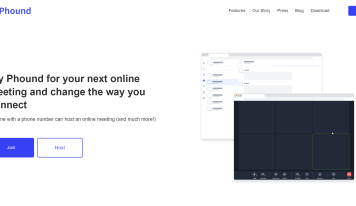Abstraction in tech adds value. Look no further than portable document format or PDF for an abstraction format for documents that revolutionized the way they were shared and printed. Before PDF, lots of energy was spent on installing printer drivers, exporting and importing documents – and quite often, retyping.
The packet network is an abstraction in the simplest sense – we send packets and they generally arrive at their destination, taking numerous possible routes.
The cloud is yet another abstraction – an amazing one… We save our files and run our applications without worrying about where the hard drives are – or the processors, memory, disaster recovery, etc.
Telecom has seen tremendous abstraction take place over the decades. Boards from companies like Dialogic back in the eighties and nineties gave access to low-level telecom functions adding tons of value as new developers came onto the scene unlocking billions of dollars of new revenue.
Some early applications were international callback then computer telephony, CTI and VoIP. Later, cloud communications services abstracted telecom to an ever greater degree. This allowed for example an Uber developer to make an API call to Twilio to allow an anonymous call between a driver and passenger.
Pareteum has been very busy doing some abstraction of their own.
They abstract a carrier network allowing the communications service provider to quickly create new, branded services such as Comcast’s Xfinity Mobile, Lowi, TracFone and Virgin Mobile. Smart meters, smart home devices, smart appliances and other devices can be provided and billed for using one of Pareteum’s many solutions.
In an interview with CEO Vic Bozzo, he explained the company is a  mobile network infrastructure enabler of companies and service providers, allowing them to quickly and easily integrate global mobile services.
mobile network infrastructure enabler of companies and service providers, allowing them to quickly and easily integrate global mobile services.
To that end, they have partnered with carriers in 60 countries including a WiFi hotspot management company with access to 64 million hotspots.
Now, they can abstract the delivering of complex telecom services including the back-end OSS/BSS as well as service delivery and granular billing. This includes providing web clients, apps, APIs and CRM.
In this way, providing a wealth of turnkey solutions, they are becoming a Communications Platform as a Service or CPaaS company. It’s likely why they are growing so quickly – with 50 new customers this year alone.
In addition they have support for blockchain, predictive analytics and biometric user-authentication.
This means they can become a fabulous enabler of service companies – content providers and others to deliver services bundled with underlying wireless broadband – in one package. The integration with the mobile core and support in so many countries and on so many hotspots makes Pareteum a viable solution for numerous companies looking to add value to the dumb pipe while providing an all-in-one solution. Examples include telemedicine, logistics, home automation and connected cities.
As Vic explained – there are parallels between what is happening in VoIP and mobile as we are now seeing a break from the control plane to the application plane. The same thing happened with the advent of SIP and the softswitch.
In short, Pareteum allows carriers to more granularly provide, manage and bill for services and for content, web and IoT companies, they can provide a turnkey platform to provide global services and bill for it.
They abstract much of the traditional telecom network – across many carriers and as a result add a great deal of value to carriers and tech companies looking to generate revenue from new services.
See my last video interview with Pareteum CEO Vic Bozzo from 2016





